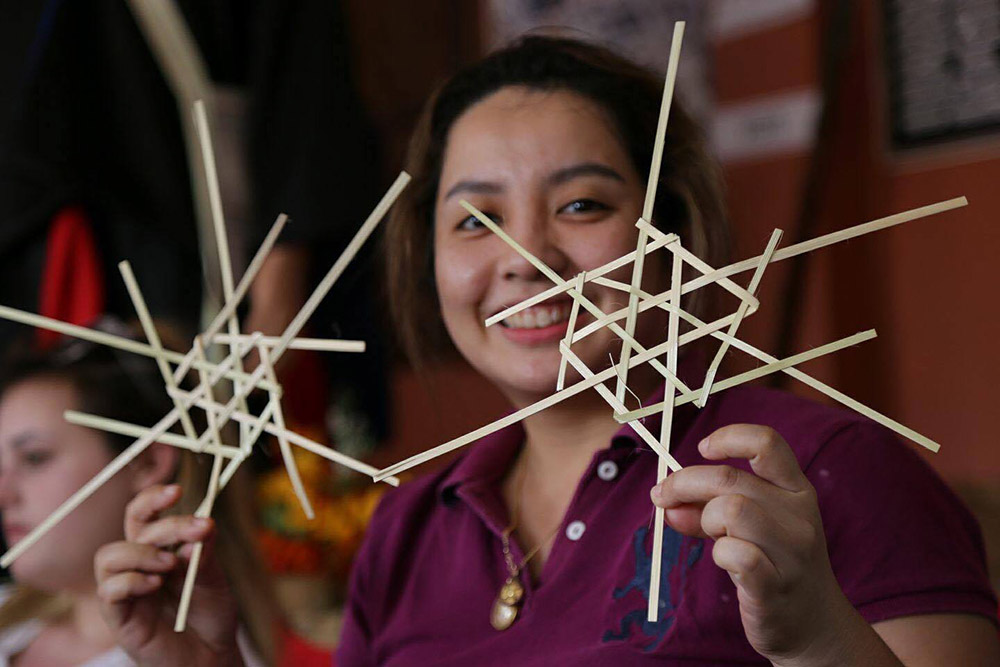
Top Tips for Environmentally Friendly Travel | Khiri Campus
Author : Khiri Campus | Tag : Environment & Conservation, For Faculty, For Students, For Teachers, Responsible Tourism
From energy-draining hotels to gas-guzzling planes and wasteful chain restaurants, travel has a massive impact on our environment. It doesn’t matter what country you are traveling to on your student travel program, at some point on your journey, you and your students will be leaving behind a trail of eco-unfriendly emissions!
At Khiri Campus, we are always looking at ways to make our programs more environmentally sustainable, so what can you and your students do to reduce your carbon footprint while traveling on a student group tour?
Here are a few suggestions that we think can help you to become more eco-conscious and reduce the environmental impact you have, while taking part in one of our responsible educational travel programs.
TRANSPORT
Try to book non-stop flights
Perhaps not surprisingly, most of the carbon emissions created from flying occurs during takeoffs and landings, when the airplane needs to generate a huge amount of thrust. It therefore makes more sense to book yourself and your students on to a non-stop flight. There are also a number of airlines that have started using a sustainable jet fuel blend. The atmosfair Airline Index 2018, is a useful tool for checking the most fuel-efficient airlines. It also has a handy carbon footprint calculator that you and your students can use to measure your emissions impact getting to a particular destination.
Trains instead of planes
Improving railway technology and infrastructure is beginning to make train travel a much more viable alternative to flying in many parts of the world, including some parts of Southeast Asia. For example, a typical journey of two or three hours by electric train emits approximately 90 percent less carbon than it would to fly, according to the carbon calculator from EcoPassenger. Of course, in Southeast Asia where our educational travel programs currently operate, clean rail technology is not often an option, however, there are moves in Thailand to replace diesel trains with a high-speed rail link in the very near future, and Laos is also considering similar plans.
Public transport
In Asia where downtown areas tend to be more compact than in North America, metro systems are also a viable alternative to taxis and local buses for offsetting emissions. Such clean modes of transport are not always an option in Southeast Asia, but in some cities like Bangkok or Jakarta, metro systems are a great alternative that you and your students can take advantage of. They are usually cheaper and quicker too!

ACCOMODATION
Eco-friendly hotels and tour operators
More and more international hotels and tour operators these days follow certification programs like EarthCheck, Travelife, Green Tourism, Green Globe, Rainforest Alliance, etc. that rate their performance on water saving, energy efficiency, material selection, indoor quality, and design innovation. When planning your educational trips abroad with us at Khiri Campus, we will ensure that your itinerary includes hotels and operators that follow eco-friendly certification programs.
Opt out of housekeeping
Many hotels these days offer incentives to guests who decline housekeeping services. This is a great way for you and your students to help the environment, as it means less energy used, less water, and less generated waste. Even if you are in small hotel that doesn’t offer incentives, you can always take the initiative and ask to skip housekeeping.
Food: Keep it local
While abroad you and your students should try to avoid dining at chain restaurants, especially the large ones with familiar names, as these global chains often import their food, and this translates into more carbon emissions. What you can do instead is seek out local businesses that use local ingredients – especially those establishments that grow their own produce, or shop for it at the local fresh market.
Souvenirs: Support local businesses
As with food, souvenirs that are imported and designed for the tourist industry have a higher carbon footprint than locally produced items, so in staying with our responsible eco-tourism ideology, we recommend that you encourage your students to buy locally-made souvenirs and other products. In addition, when you buy something directly from an artist or a local craftsman, you are not only helping them feed their family, but quite often you are helping to preserve their culture too.
Creating an awareness of the need to share global resources in an efficient, fair and responsible way is a fundamental part of Khiri Campus’s educational programs for students. If you’re interested in arranging a responsible travel program for your students, check out our school and university programs and get in touch with us.


